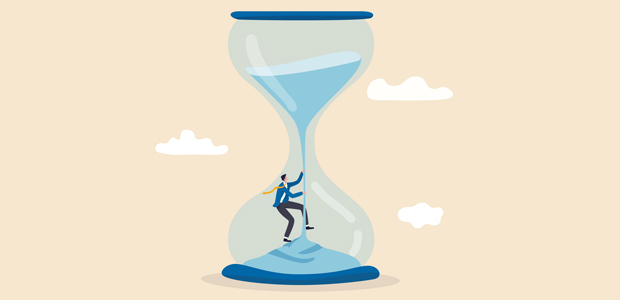
Timing Is Everything
Timing, it is often said, is everything. And this can certainly be true in the world of business, as almost everything that you or your business does can be affected in one way or another as to when that action is taken.
I was reminded of this fact recently whilst doing a presentation for The Prince’s Trust on why businesses must always be adapting. One question that I asked was when did your business start to trade and how much did you need to adapt due to lockdowns and other restriction imposed in 2020? There was of course the usual mix of answers depending upon what the business did, but as the attendees were startups or early stage businesses many of them had only started after the pandemic had started, rather than being caught totally by surprise by it as longer established businesses were. The newer entrants had therefore spotted a gap in the market that had been created by the unusual circumstances or, at the very least, had established a business model designed for it. Both these scenarios are better than being caught totally unprepared and having to rapidly adapt, so timing definitely favoured the later entrants.
The above shows that sometimes it can be beneficial to join the party later. Alternatively, another very well known phenomena is known as the ‘first mover advantage’. This is where the first entrant into a market, or with a new product or service, will often retain a significant advantage over later entrants for many, many years into the future, even when the new competition might actually offer advantages over the first entrant. Certainly in all things tech, getting that new product or service to market and then spending large amounts on a major marketing campaign can often make all the difference, not just in how well the company does, but even in whether it will survive or not. If too much time is taken to get to market and obtain sufficient traction, then there is a strong likelihood that your competition will get there first, and without that first mover advantage your business might never make sufficient sales.
There are also many examples all around us of how timing is deliberately used to reduce or increase exposure. For example, from deliberately ‘burying’ bad news by releasing it during a major event, through to deciding whether a television advert is played during the evening peak time or the much lesser watched middle of the day. More crucially, I have seen many a business try to push a perfectly good product but just too early to be adopted in scale by the public – the electric vehicle industry to name just one good example in recent times. What was not possible or desired before is now in demand.
For any business, deciding what the next steps should be, and how large they should be, is always crucial. Get those steps wrong, go in the wrong direction, or make them too timid or too bold, and lasting damage can be done. But even if they are the right steps in the right direction, timing really can be everything. If those steps are taken too soon or too late, then all your other preparations may still not achieve what they otherwise would have done.

